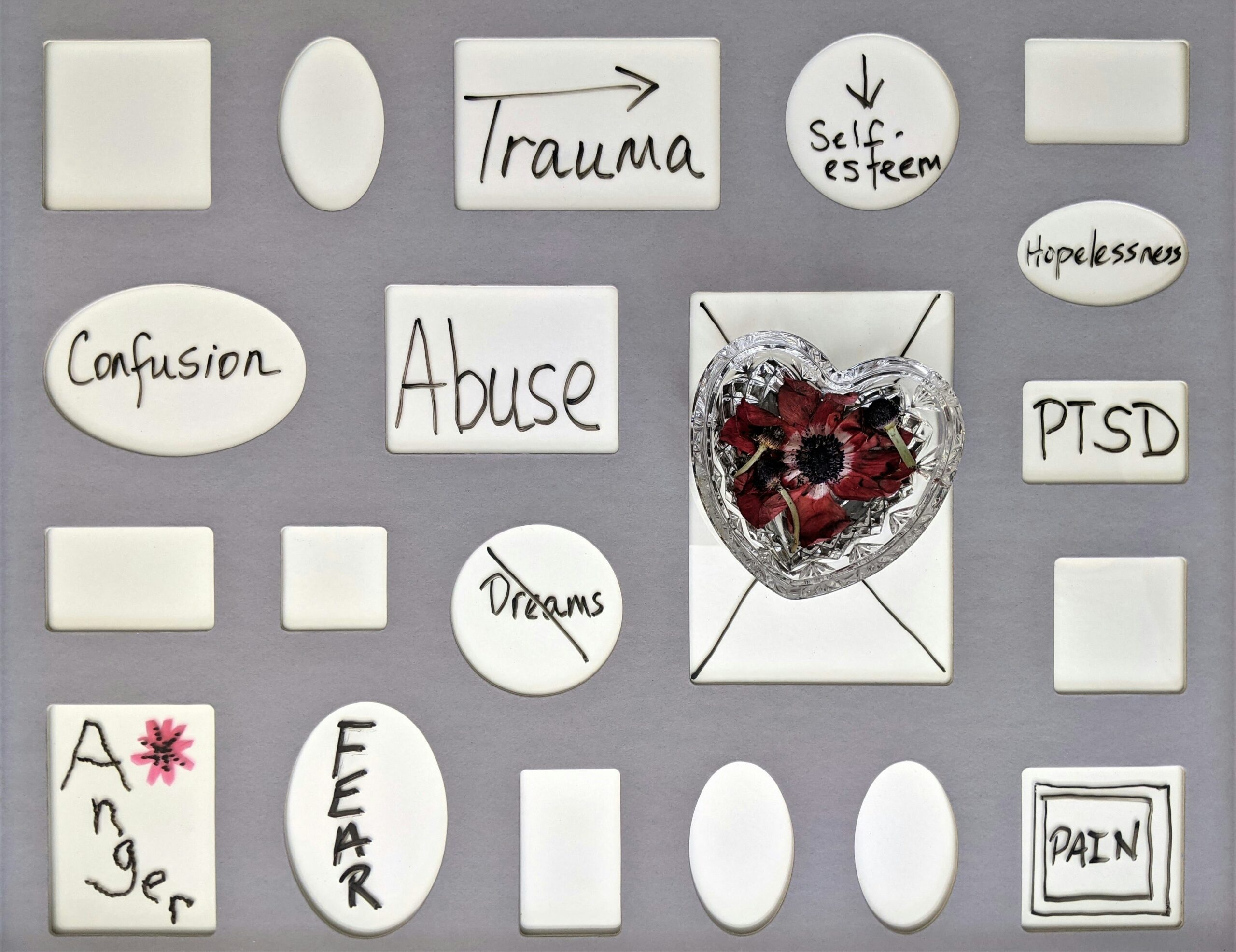Effective PTSD Treatment Maryland | Start Healing from Trauma
- Home
- /
- Blogs
- /
- Uncategorized
- /
- Effective PTSD Treatment Maryland | Start...

How often do you feel your past stops you from moving on? There are other people like you. Post-traumatic stress disorder (PTSD) is a problem that a lot of people in Maryland have. However, there is good news.
Maryland has many ways to help out. This blog post offers many choices, such as therapy and a support center. I will discuss how different treatments can help you endure those tough times. You can meet with a therapist one-on-one or join a group of people who understand what you’re going through.
This guide literally gives you the information you need to start changing things right away. Let’s find out what Maryland offers in terms of help so you can start getting better.
What Exactly Is Ptsd, And How Does It Affect People?
PTSD, or Post-terrible Stress Disorder, is a mental illness that some people get after going through or seeing something terrible. It could be a major accident, an attack, or anything else that made you feel like your life was in danger or was very stressful.
People who have PTSD may have nightmares or flashbacks that make them remember the event. They may also feel sad, scared, or angry and not close to others. These signs may be bad enough to make it hard for the person to do everyday things and enjoy their personal life.
You can think of PTSD as long-lasting mental and emotional stress caused by a traumatic event. Not only does this disease affect veterans, but it can affect anyone from any background.
Common Symptoms Of Ptsd
The signs of PTSD can be broken down into four primary symptoms:
- Intrusive memories include unwanted, upsetting memories of the traumatic event that keep coming back, flashbacks, or strong emotional or physical reactions to things that make you think of the traumatic event.
- Avoidance, Staying away from places, activities, people, and thoughts that make you think of the trauma can have a significant effect on your life and relationships with other people.
- Adverse changes in thinking and mood, like having bad feelings about yourself or others, being unable to feel good emotions, being mentally numb, or losing interest in things you used to enjoy.
- Changes in how your body and emotions respond, also called arousal symptoms, can include being easily startled or scared, always being on the lookout for danger, acting in ways that hurt yourself, having trouble sleeping, and being irritable.
Knowing about these signs is the first thing you should do to get help and find the proper treatment to manage them.
PTSD Treatment Options in Maryland
There are several good ways to treat persistent PTSD. As everyone is unique, finding the best fit is essential. Most of the time, people get these kinds of treatments:
Therapy
In Maryland, there are several successful ways to treat PTSD. Among these are:
- Cognitive behavioral therapy (CBT) helps people see and change the ways they think, which causes them to feel and act in evil ways.
- Prolonged Exposure Therapy helps people who have been through trauma feel less afraid and distressed by exposing them to things that remind them of the trauma over time.
- Eye Movement Desensitization and Reprocessing (EMDR) is a safe way to work through and make sense of traumatic events.
Many skilled therapists in Maryland specialize in these types of treatments, so each person can get treatment specifically designed for their needs.
Medication
Another good way to deal with PTSD symptoms is to take medicine, which is often used along with therapy. Antidepressants like SSRIs (Selective Serotonin Reuptake Inhibitors) and SNRIs (Serotonin-Norepinephrine Reuptake Inhibitors) are usually recommended because they can help PTSD patients who are depressed and anxious. By talking to a doctor or nurse about your symptoms and health background, you can find the best medication for you.
Alternative Healing Methods
Alternative healing techniques, traditional therapies, and medicines have become more prevalent in Maryland.
- Yoga and mindfulness meditation, for example, help people relax and think more clearly.
- Acupuncture works by focusing on specific body points to balance energy and lessen stress and worry.
- Animal-assisted treatment, especially with horses and dogs, has been shown to improve emotional well-being and reduce anxiety.
As extra treatments, these non-traditional approaches can help standard therapies work better, giving people with PTSD a more complete way to deal with their condition. Maryland has several programs and doctors trained in these alternative therapies, so it can help people who want to try something different for their therapy.
PTSD Outpatient Treatment Programs
Outpatient programs for PTSD offer therapy and support while letting people keep up with their routine daily tasks, like going to work and hanging out with friends. These plans are flexible and can be changed to fit the needs of each person. This lets the patient fit treatment into their daily life.
Advantages of Treatment Outside of Hospital
Cognitive behavioral therapy, group therapy, and family therapy are some common types of therapy used in outpatient treatment programs. This mix allows people to get complete treatment without staying in the hospital. The benefits include lower costs compared to hospital care, the ability to use newly learned skills right away in real life, and staying in touch with family and community, which can help in the long term.
Challenges of Outpatient Treatment
Even though it has benefits, outpatient care for PTSD can be challenging. Individuals must be very dedicated to it because it can be hard to keep appointments and use coping techniques regularly when they are not in a structured setting. Also, doctors and nurses may not be as easy to reach in an emergency as they are at inpatient facilities. Finding the right mix between the intensity of therapy needed and taking care of daily tasks can be challenging. The patient, their support network, and healthcare professionals must work together closely.
How much it costs to treat PTSD in Maryland
A lot of people and families in Maryland worry most about how much PTSD treatment will cost when they are looking at their choices. Learning about the range of costs that come with different methods can help you plan and make wise choices.
Factors influencing cost
The cost of treatment for PTSD in Maryland can vary a lot based on a few main factors:
- What kind of treatment: You could get therapy alone, in a group, take medicine, or do a mix of these. Most of the time, intensive programs or inpatient care cost more than therapy lessons that you do at home.
- Provider qualifications: Therapists who specialize in PTSD or areas related to it may charge more for their services than general therapists.
- Duration and frequency of treatment: The total cost of care increases when sessions last longer and happen more often.
- Location of treatment: Treatment costs can also change based on whether it is given in a city like Baltimore (where prices may be higher) or in a more rural area.
Knowing these things can help you determine how much it might cost and make plans based on that.
Insurance coverage
Insurance coverage is an essential part of handling the costs of treating PTSD. A lot of insurance companies will pay for some of the costs of therapy and prescription drugs used to treat PTSD. To get insurance, do the following:
- Make sure you’re covered: Get in touch with your insurance company to find out what services are allowed and how much they cover.
- Pre-authorization: Before starting some treatments, you may need permission from your insurance company.
- Out-of-network benefits: If the doctor you want to see isn’t in your insurance plan’s network, see if your plan gives out-of-network benefits. These could help you save money as well.
Some treatment centers in Maryland offer sliding-scale fees or financial aid programs to help people without insurance pay for their care.
How to Find the Best PTSD Treatment Center in Maryland
Choosing exemplary service is very important for treatment to work and for recovery to go well. Maryland has a lot of qualified workers and treatment centres that deal with PTSD and other trauma-related disorders.
Looking into providers
Start by looking into possible PTSD treatment sites or providers in Maryland. Essential things to think about are:
- Area of expertise and work experience: Find therapists who are trained to treat PTSD and have a lot of experience with trauma illnesses.
- Credentials and accreditation: Make sure that the therapists have valid credentials and that the provider or school is approved by the right health groups.
- Techniques used for treatment: Learn about the different treatment methods and choose the one that might work best for your needs.
During this part of the research, websites, profiles of providers, and reviews from patients can be very helpful.
Looking for suggestions
Asking for suggestions is another good way to find a good PTSD treatment provider:
- Ask people who work in health care: Your primary care doctor or a mental health worker can help you find good PTSD specialists in Maryland.
- Groups in the community: Joining PTSD-focused community groups or forums can help you get personal advice and hear about the experiences of others who are going through the same things you are.
- Networks of support: Get help from family, friends, or support groups that may know someone who has been through similar treatments.
It’s not just about titles and costs when looking for a provider. Comfort and trust are also very important when treating PTSD. If you live close to Baltimore, the Baltimore Counseling Center might be a good pick. They deal with stress and will take care of you. You can find them there. This might help you feel better right away.
Wrapping Up
People in Maryland who are dealing with PTSD have a lot of treatment choices to choose from. You are not alone on this road. Some places offer cutting-edge therapies like cognitive behavioral therapy, EMDR, and many support groups. It takes courage, and it is essential to get help to heal.
Study and talk to healthcare professionals to make the best plan for you. Remember that it is possible to get better mentally, and the proper treatment can make a big difference in your daily life.
